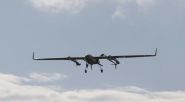
The World Bank has published on Thursday an initial assessment report of the impact of conflict on Lebanon’s Economy and Key Sectors.
According to a new World Bank report, the cost of physical damages and economic losses due to the conflict in Lebanon is estimated at USD 8.5 billion.
The Lebanon Interim Damage and Loss Assessment (DaLA) finds that damages to physical structures alone amount to USD 3.4 billion and that economic losses have reached USD 5.1 billion.
The report noted that in terms of economic growth, the conflict is estimated to have cut Lebanon’s real GDP growth by at least 6.6% in 2024. “This compounds five years of sustained sharp economic contraction that has exceeded 34% of real GDP,” the report added.
The report also looks at the impact of the conflict on the people of Lebanon. “There are over 875,000 internally displaced persons in Lebanon, with women, children, the elderly, persons with disabilities and refugees at highest risk. An estimated 166,000 individuals have lost their jobs, corresponding to a loss of USD 168 million in earnings,” the World Bank said.
According to the report, housing has been the hardest hit sector, with almost 100,000 housing units partially or fully damaged, amounting to USD 3.2 billion in damages and losses. Disruptions to commerce are amounting to close to USD 2 billion, driven in part by the displacement of employees and business owners. The destruction of crops, livestock and the displacement of farmers has driven agricultural losses and damages of about USD 1.2 billion.
“The Lebanon Interim Damage and Loss Assessment draws on remote data sources and analytics to assess physical damage and economic losses across seven key sectors,” the report said, adding, “The damage assessment covers the six most conflict-affected governorates, while economic losses are assessed nationwide whenever data allows. Data collection was finalized as of October 27th for four sectors covered (commerce, health, housing, tourism/hospitality) and as of September 27th for the other three (agriculture, education, environment).”
The report pointed out that “a comprehensive Rapid Damage and Needs Assessment (RDNA) that assesses economic and social losses as well as financing needs for reconstruction and recovery will be completed when the situation allows.”
“The cost of damages, losses and needs estimated through a comprehensive RDNA is expected to be significantly higher than that of this interim assessment,” the report noted.
“To respond to the current crisis facing the country, the World Bank is activating emergency response plans to re-direct existing resources to support the urgent needs of people in Lebanon,” the report concluded.



Comments